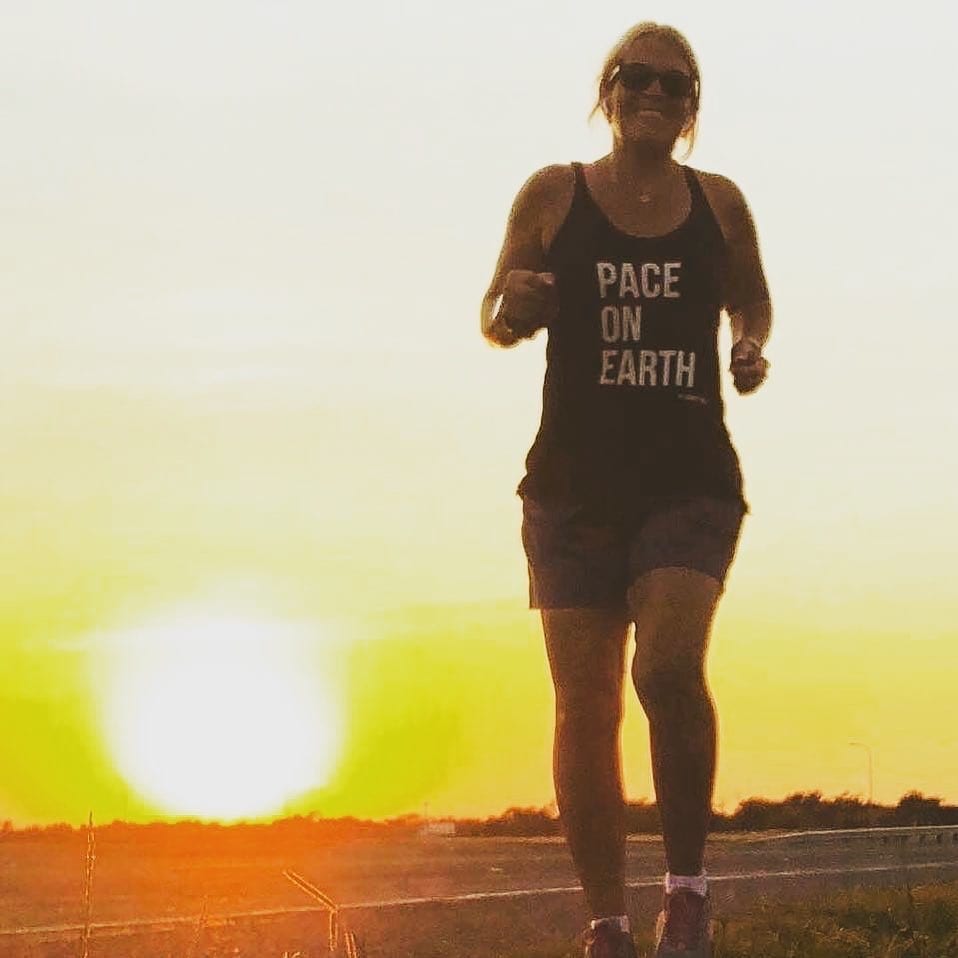
Background Information
I am Rhonda Foulds, and I was officially diagnosed with PD in May of 1999, when I was 35 years old. Originally from New Berlin, NY, I moved to Justin, TX in July of 1996. I worked for BF Goodrich as a welder and assembler for many years. I retired from manufacturing in 1999 and went to work for Wells Fargo Bank. Then, I retired from that position in 2009. I love to read, cook, run, bike, row and swim.
My network of support is invaluable. I have three grown boys who are now married and have their own families, but I talk to each of them almost every day. My husband is also super supportive and he works very hard to keep things as close to normal as possible for us both. I also have a great group of friends who I rely on as well and for that I’m very thankful.
Five Questions
How did your PD diagnosis come about?
I was training to run my first marathon, the White Rock Marathon in Dallas, TX, at the time of my diagnosis. I had noticed a tremor in my little finger and in my jaw, both on the right side of my body. I thought I was overtraining, so I went to see my primary care physician. He referred me to a neurologist in Dallas. I actually saw two neurologists; both thought I had Parkinson’s and finally a movement disorder specialist gave me the diagnosis of PD.
What actually caused me to go see my doctor and take it seriously was something my husband noticed. He was riding his bike with me, following me while I ran, and he said my right leg was dragging. I hadn’t noticed it but when I got home, I realized that the tread wear on the bottom of my right shoe was significant compared to the left.
What are the more significant challenges you face, and how do you meet these challenges?
The most significant changes for me are trying to be brave and trying to keep a bright outlook. I feel that many times people don’t understand how truly difficult a PD diagnosis can be, and how difficult it is to put your best foot forward each day when you have run out of dopamine in your brain. It is the feel good chemical and without it, it can be really tough to “pull yourself up by your bootstraps,” so to speak.
How do you cope with having PD?
The key way that I deal with having PD is through exercise. There are days when I wake up and I don’t feel like doing anything physical, but I know that I will feel much better if I do. So I treat exercise the same as I do brushing my teeth or taking a shower. It is something I put on my schedule every day and do it. No matter what. I have never regretted completing a workout.
[PD Wise notes that Rhonda has run 100 marathons since her diagnosis in 1999,]
What has surprised you most about living with PD?
What has surprised me most about living with PD is the large amount of activities I am still capable of doing. I was diagnosed more than 20 years ago and at the time I truly thought my quality of life would continue to spiral out of control. The opposite has happened. I get up every day and take care of myself according to a strict schedule of self-care, including exercise, vitamins, medications, rest, charging my DBS battery, and family time. This is the plan I’ve decided to keep Parkinson’s from taking over my life.
What wisdom would you offer someone who is newly diagnosed? Or, what would you want your newly diagnosed self to know about the journey ahead?
I wish there had been more information about how exercise stops PD from progressing as fast. At the time of my diagnosis there was little known about this. I also wish there had been more positive messages for the newly diagnosed. I feel it’s very important to stay active in your community and with your friends and interests. Share your diagnosis with people and don’t be afraid to let them know what’s going on. I believe that many times we don’t give other people a chance to step up because we’re afraid of their response. I’ve found that friends and family are willing to help if you tell them what’s going on and you’re not afraid to ask for help.
As a side note, my deep brain stimulation was done when I was very young. I was only 40 but it has been like a true miracle for me. I don’t push others to have the surgery because I know there are mixed results. My neurosurgeon thought at the time that the surgery may slow down the progression of PD and it just worked out that for me, that’s definitely true!
__________
Rhonda Foulds is a 56-year-old mother of three grown boys who was diagnosed with Parkinson’s disease in 1999. She grew up in upstate NY and then moved to north central Texas in 1996. Currently retired, she is an athlete who has run 100 marathons since her diagnosis. She underwent deep brain stimulation (DBS) in 2004 when she was 40 years old. As an ambassador for the Davis Phinney Foundation, she helps people with PD to live their best lives today!
